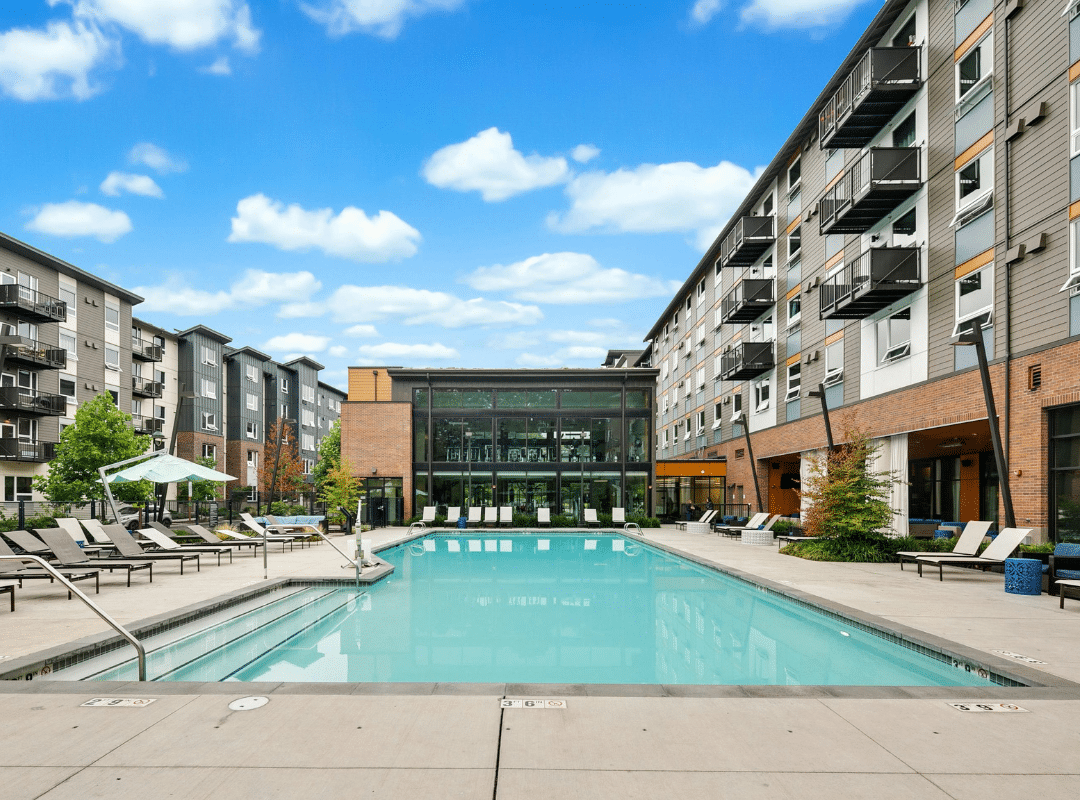Navigating the financial and emotional landscape of dementia care is one of the most important decisions many families face. From understanding monthly expenses to evaluating what services are truly necessary, the question often asked is: How much does memory care cost?
At Heritage Manor Assisted Living, the average cost is around $6,935 per month, a figure that reflects the specialized support offered to individuals living with dementia. This investment in compassionate, structured care provides not only safety and stability for your loved one but also peace of mind for you. In this guide, we’ll break down the true cost of memory care and explore who pays, how much, and what’s included to help you make informed decisions.
Understanding the True Cost of Memory Care
The cost of memory care is influenced by several variables, including facility location, staffing levels, the extent of personalized services, and included amenities. On average, the memory care facility cost per month nationwide sits at around $6,935, which is significantly higher than the $4,500 average for standard assisted living. This price difference reflects the specialized programming, secure environments, and dementia-trained caregivers required to meet residents’ needs.
Families often ask: Who pays for dementia care? The answer is a combination of personal savings, long-term care insurance, Medicaid for those who qualify, and occasionally veterans’ benefits. For those managing conditions like Alzheimer’s, it’s essential to budget for the cost of Alzheimer’s care facilities in your area and determine whether any public or private assistance applies to your family’s circumstances.
Explore Heritage Manor’s tailored memory care services to learn how a well-structured environment enhances residents’ comfort, safety, and quality of life.
Monthly Expenses and What’s Included
Average Memory Care Facility Cost Per Month
The memory care facility cost per month can range from $4,000 to over $10,000, depending on geographic location, amenities, and services. At Heritage Manor, the average monthly cost of $6,935 includes 24/7 care from trained professionals, meal plans, daily living assistance, medication management, and specialized dementia activities.
This cost reflects more than just room and board—it supports a comprehensive, resident-centered care model designed specifically for those experiencing cognitive decline. Learn more about the cost breakdown and differences between memory care and assisted living in this comparison: Assisted Living vs. Senior Housing.
What Influences Pricing?
Several key factors contribute to the cost of Alzheimer’s care facilities:
- Location: Urban or coastal areas typically have higher costs due to real estate and labor expenses.
- Level of care: Residents with advanced dementia may require more intensive care, raising overall expenses.
- Facility features: Private rooms, luxury amenities, and enrichment programs all add to the base cost.
- Staff-to-resident ratio: Higher ratios mean more personalized care but also higher pricing.
- Security and specialized programming: Enhanced safety and cognitive therapies increase operational costs.
You can explore a facility’s services and staffing quality at Heritage Manor’s living options.
Insurance and Government Aid
Does Medicare Cover Memory Care?
A common question is: Does Medicare cover memory care? The answer is nuanced. Medicare does not typically cover long-term stays in memory care facilities, but it can provide limited support through:
- Hospital care
- Doctor visits
- Some medications and therapies
- Short-term skilled nursing
Families should also consider Medicaid for eligible seniors, which may cover partial or full dementia day care costs or facility fees, depending on the state’s guidelines.
To further understand budgeting, check this guide on assisted living costs.
Who Pays for Dementia Care?
If you’re wondering who pays for dementia care, the options include:
- Long-term care insurance. Some policies cover memory care, depending on benefits and diagnosis.
- Veterans benefits. Aid & Attendance pensions help cover memory care for eligible veterans and their spouses.
- Private savings. Families may rely on income, retirement funds, or real estate equity.
- Medicaid. Covers low-income seniors based on financial eligibility and state requirements.
Understanding your financial strategy early can make a huge difference. It’s wise to consult an eldercare financial advisor to evaluate your situation and make a sustainable plan.

Comparing Memory Care to Other Senior Options
Memory care offers more comprehensive services than standard assisted living, especially for residents with mid-to-late-stage dementia. While the memory care facility cost per month is higher than assisted living, it’s often lower than private nursing home care, which averages over $9,000/month.
In-home care offers flexibility but can exceed facility costs if 24-hour supervision is needed. Meanwhile, dementia day care costs are more affordable (usually $75-$150 per day) and can supplement care for families who still support a loved one at home.
What You’re Paying For: Services and Amenities
When evaluating how much memory care costs, it’s essential to understand what’s included:
- Private or shared suites
- Three meals daily with snacks
- Medication assistance
- Daily grooming and hygiene help
- Therapeutic activities (music, art, gardening)
- 24/7 supervision
- Transportation to medical appointments
- Enclosed outdoor areas for safe wandering
These amenities are not luxuries—they are necessities that improve safety, well-being, and dignity for individuals living with memory loss.
Deciding If Memory Care Is the Right Choice
So, when is the right time? If your loved one:
- Frequently forgets appointments, medication, or basic hygiene
- Becomes lost, anxious, or agitated
- Poses a safety risk to themselves or others
- Exhibits behaviors like wandering or sundowning
—Then, specialized care may be the most compassionate and secure solution.
Facilities like Heritage Manor provide structured environments, trained staff, and emotional support that go beyond what’s possible at home.
Planning Ahead: Financial Strategies
To prepare for the cost of Alzheimer’s care facilities, start with:
- Reviewing long-term care insurance plans early
- Consulting Medicaid offices for local eligibility
- Exploring reverse mortgages or selling unoccupied real estate
- Talking to a financial planner experienced in senior care
These steps can help families stay proactive instead of reactive, ensuring quality care remains accessible.
Smart Questions to Ask Facilities
Before choosing a memory care community, ask:
- What’s the base rate, and what does it include?
- How are increases in care level handled financially?
- Are there additional fees for medication, therapy, or transportation?
- How is communication handled between families and staff?
- What training do caregivers receive?
The answers will help you assess whether the price aligns with the value and whether your loved one will receive the attentive care they deserve.
A Confident Path Forward
Investing in memory care is more than a financial decision—it’s a commitment to your loved one’s safety, dignity, and daily happiness. The cost of memory care vs assisted living may seem steep, but the value lies in peace of mind, improved health outcomes, and compassionate environments built for cognitive support.
When you’re ready to take the next step, contact Heritage Manor Assisted Living or call (520) 818-2488 to schedule a tour. Your loved one deserves comfort, connection, and care—and you deserve confidence in your decision.
Frequently Asked Questions
How much does memory therapy cost?
Memory therapy costs can vary widely depending on the type of service and location. On average, cognitive therapy sessions may range from $100 to $250 per session. Some insurance plans may cover part of the cost, mainly if prescribed by a doctor. Group programs or community centers may offer lower-cost or free alternatives.
What is more expensive, memory care or a nursing home?
Memory care is often more expensive than traditional nursing home care. This is due to the specialized staffing, secure environments, and tailored activities required for individuals with dementia. While nursing home care typically ranges from $7,000 to $9,000 monthly, memory care can exceed $9,000, depending on the location and amenities. However, costs may overlap depending on the level of medical care involved.
How much does it cost to care for a dementia patient?
The cost to care for a dementia patient typically ranges from $5,000 to over $10,000 per month. This includes memory care facility fees, in-home caregiving, medical care, and support services. Costs vary based on the severity of the condition and the type of care chosen. Medicaid or long-term care insurance may help offset some expenses.
What is the best treatment for memory impairment?
The most effective treatment for memory impairment typically involves a combination of medication, cognitive therapy, and lifestyle modifications. Cholinesterase inhibitors and memantine are commonly prescribed drugs for Alzheimer s-related memory loss. Mental stimulation, physical exercise, and a healthy diet also support brain health. A healthcare provider should tailor the treatment to the individual’s specific needs.


